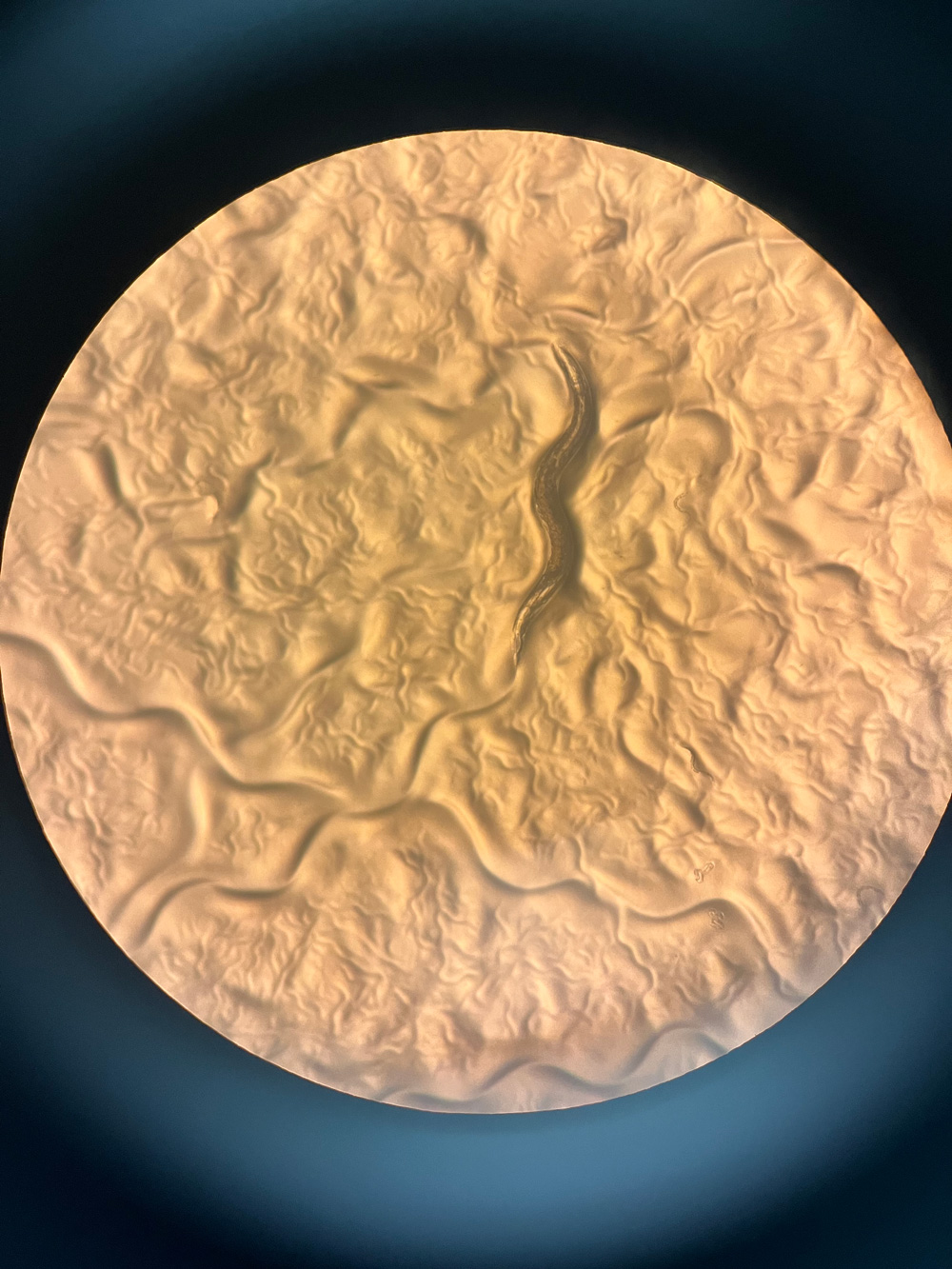
Honorable Mention:Without Maternal Influence
Photography by Katie Poquette, undergraduate student,
Harriet L. Wilkes Honors College
Harriet L. Wilkes Honors College
In this picture, you can see tiny worms called C. elegans. These worms are used to investigate the long-term effects of embryonic amphetamine exposure. The study found that high doses of amphetamines during embryogenesis altered the expression of key dopaminergic proteins, tyrosine hydroxylase (TH) and vesicular monoamine transporter (VMAT), in adult worms, leading to increased sensitivity to the drug. Since C. elegans embryos develop outside the uterus, the research isolated direct effects on the embryo, without maternal influence. The findings highlight C. elegans as an effective model for studying the long-lasting neurological impacts of prenatal amphetamine exposure.